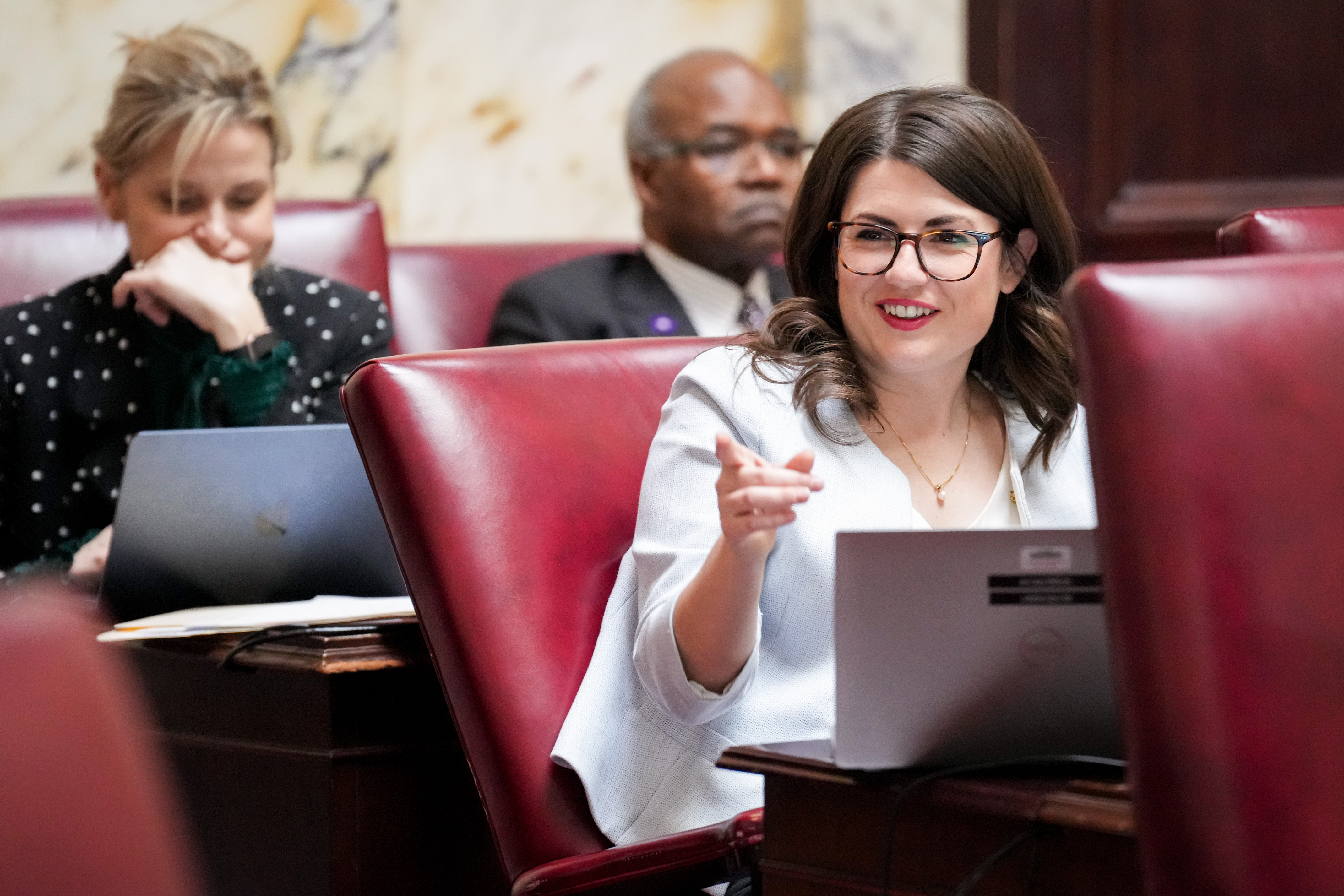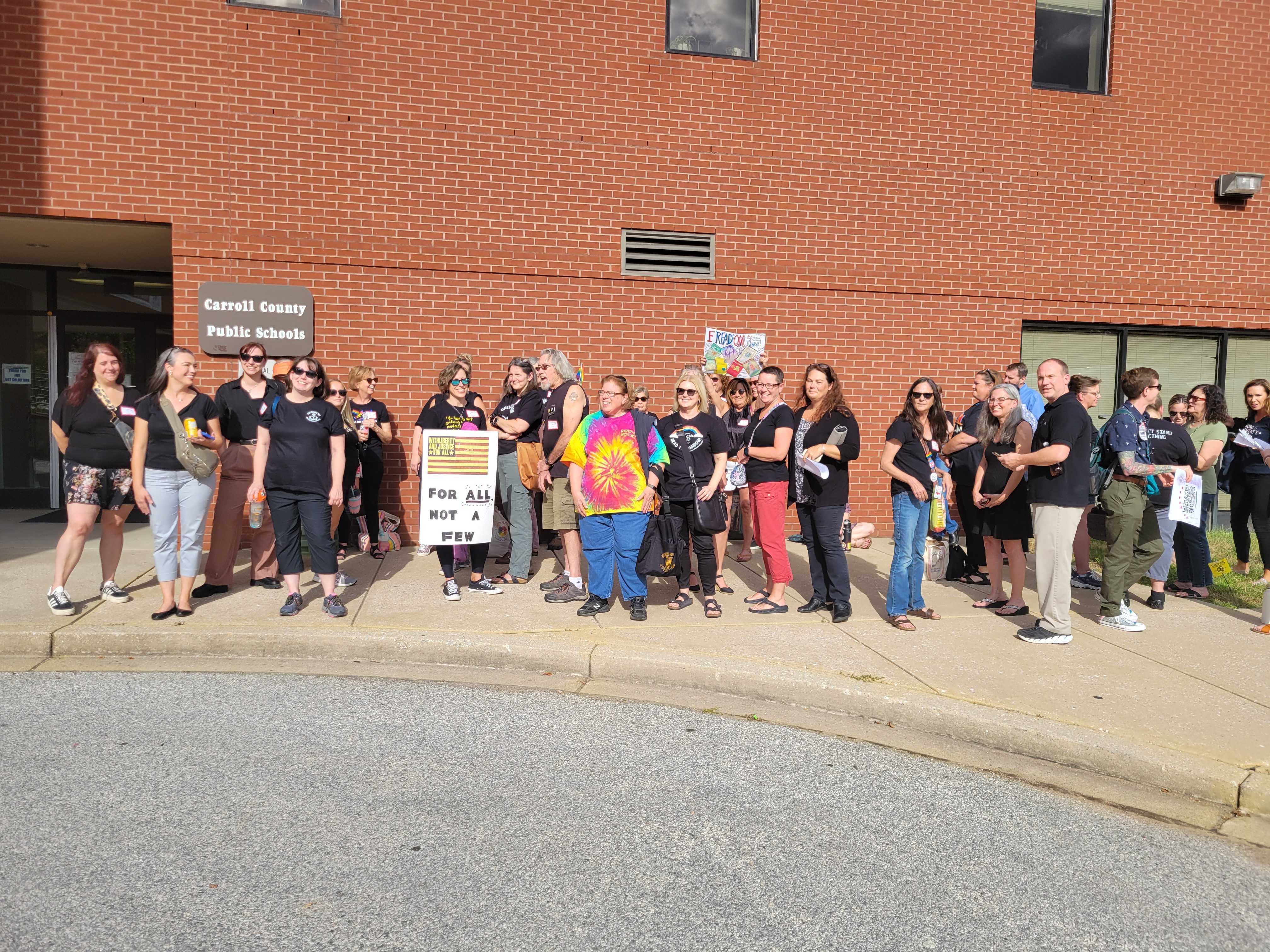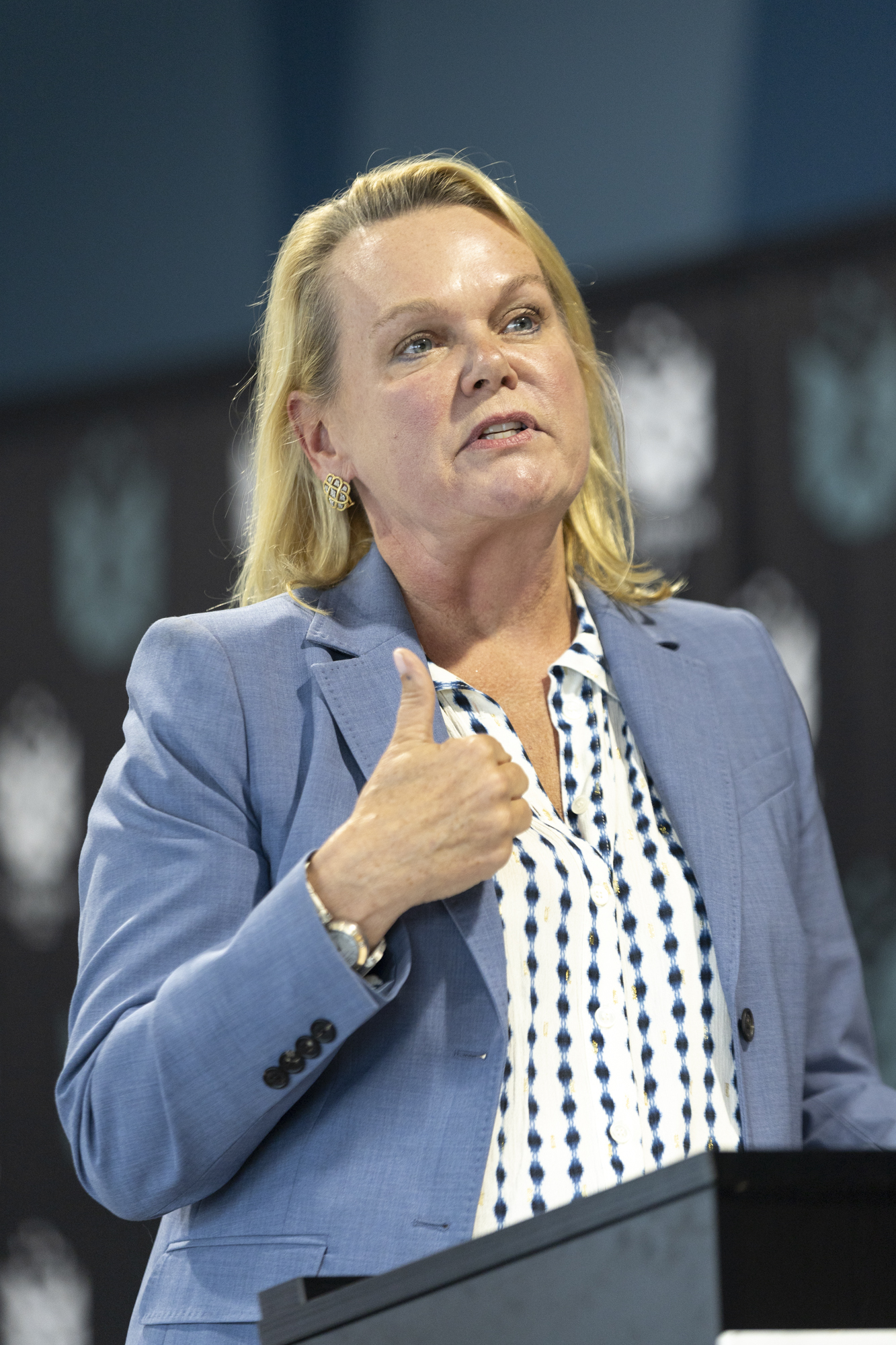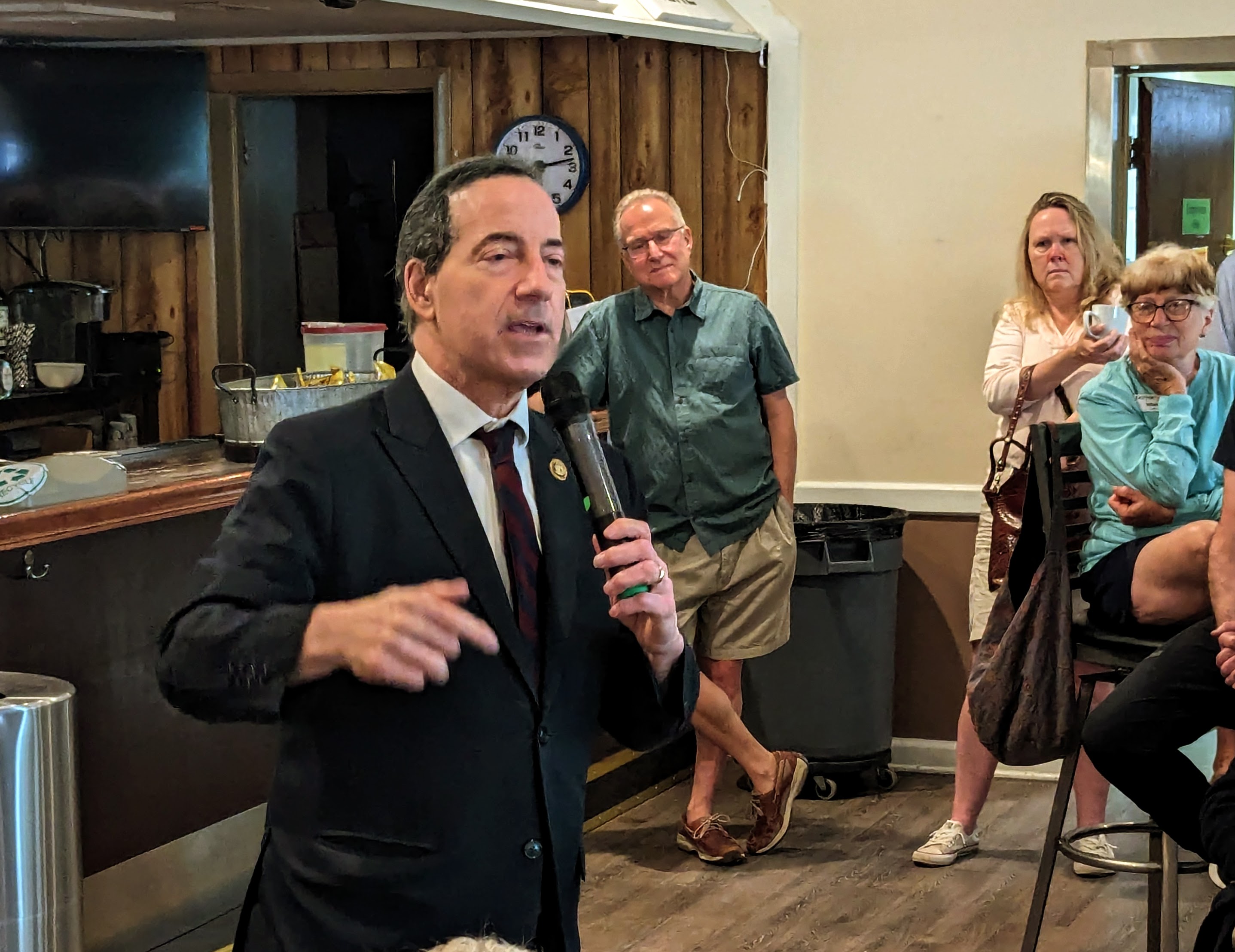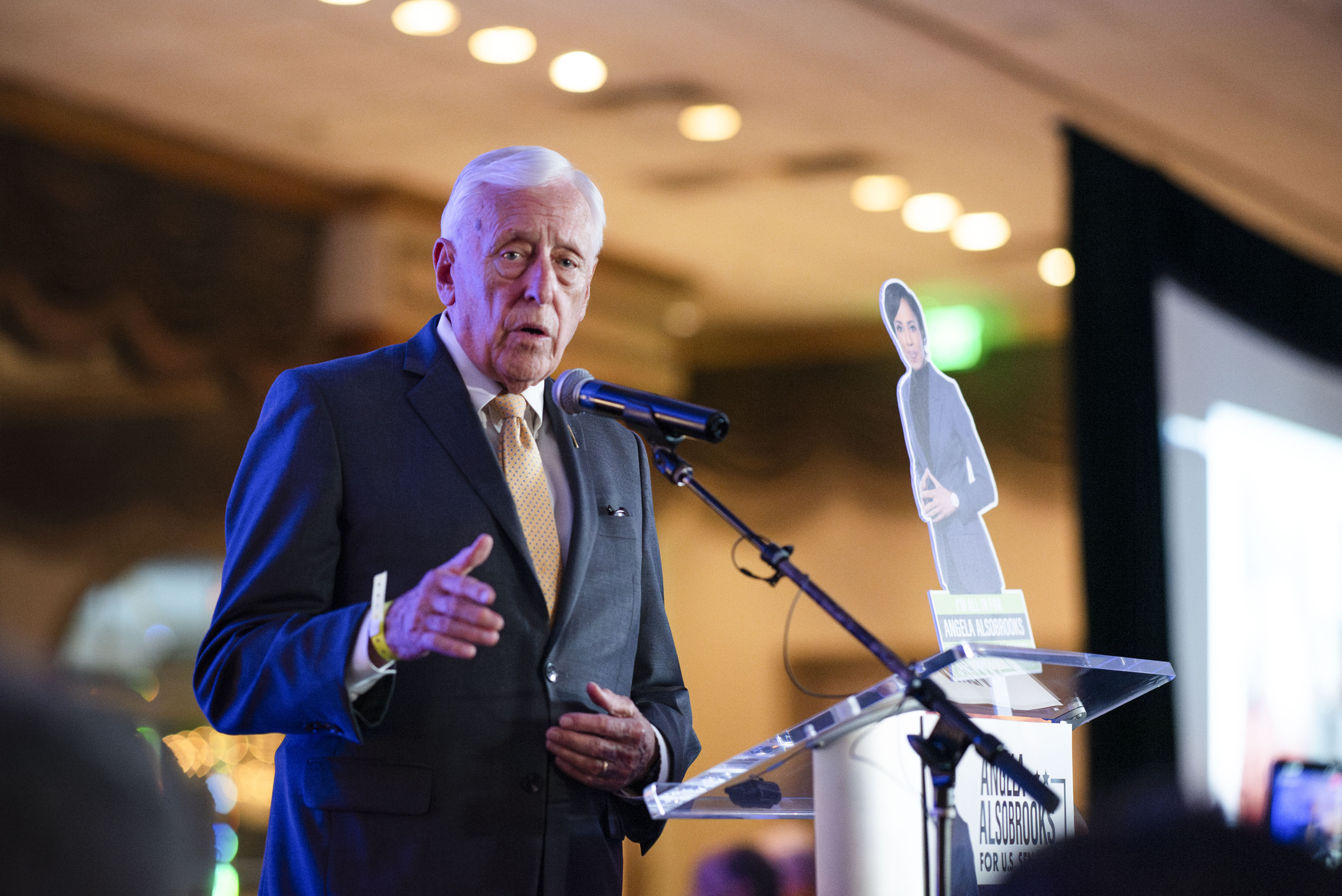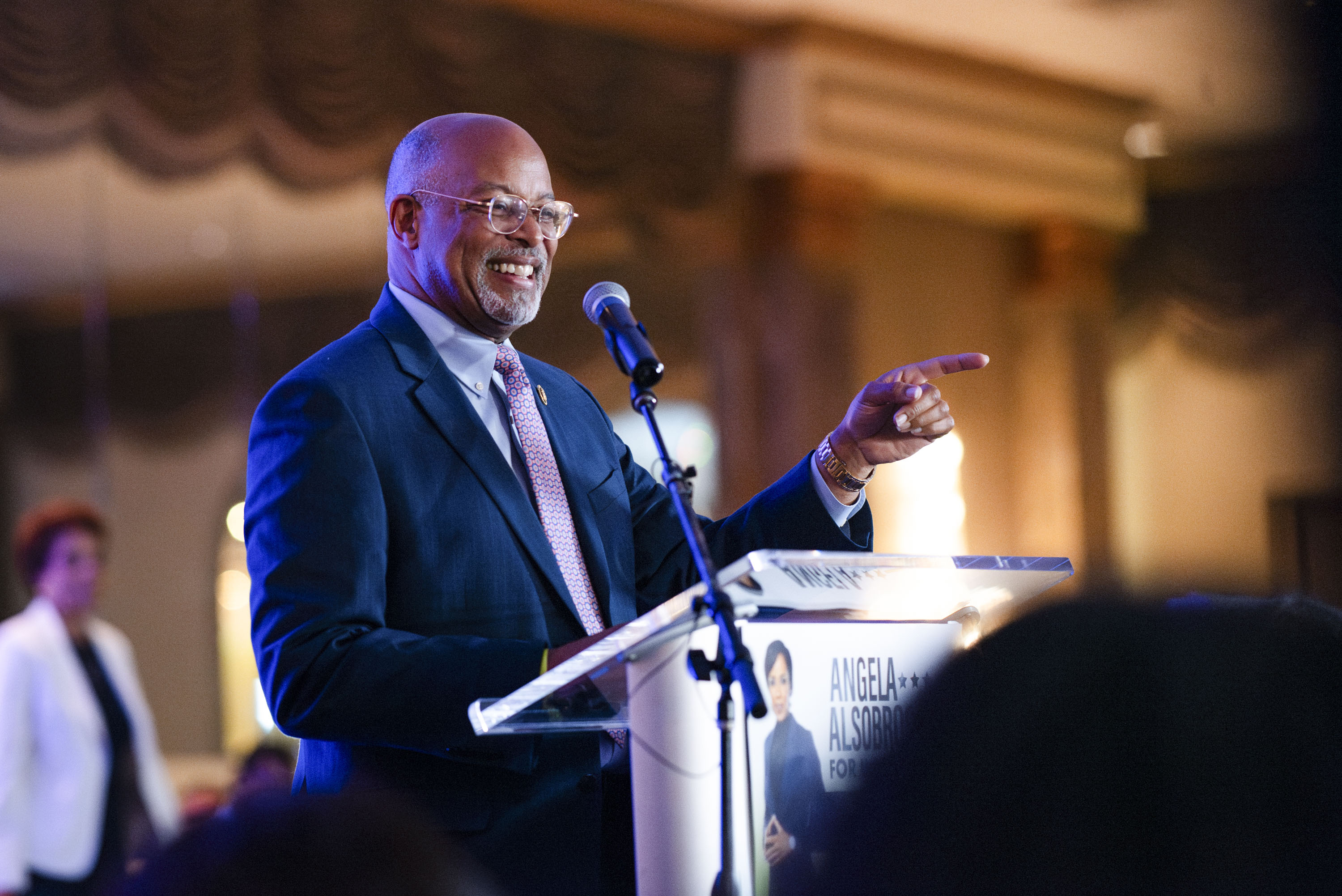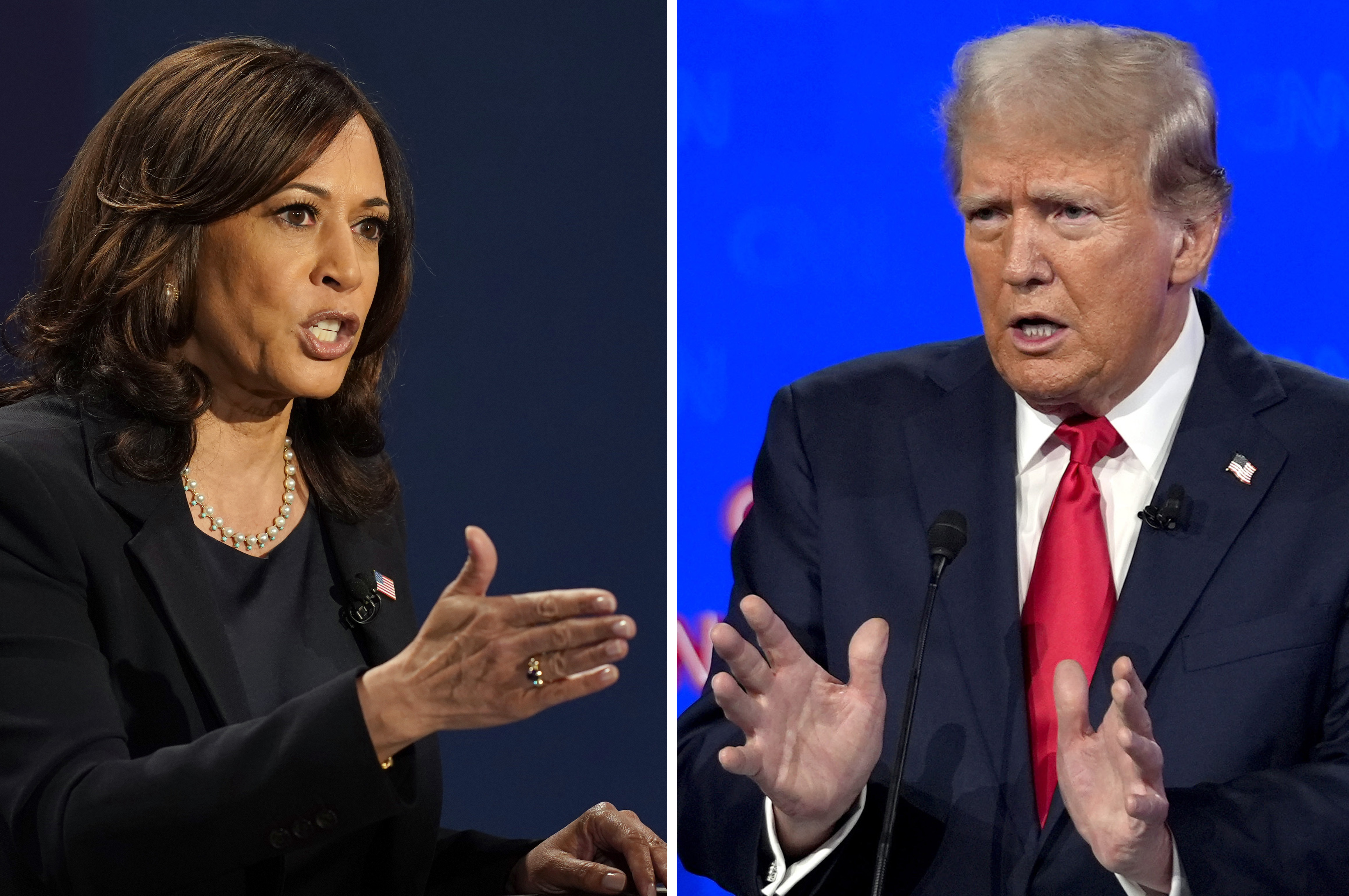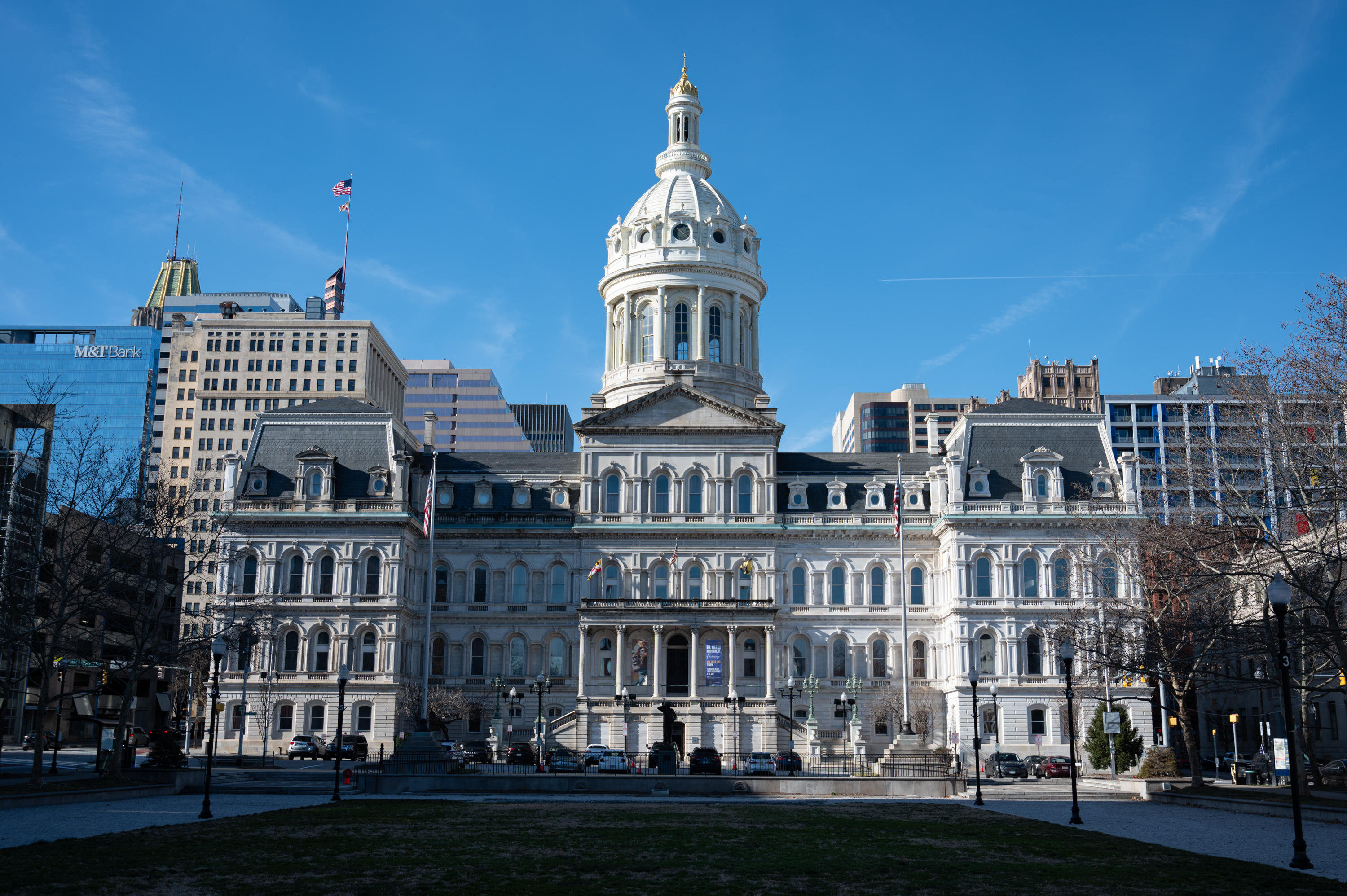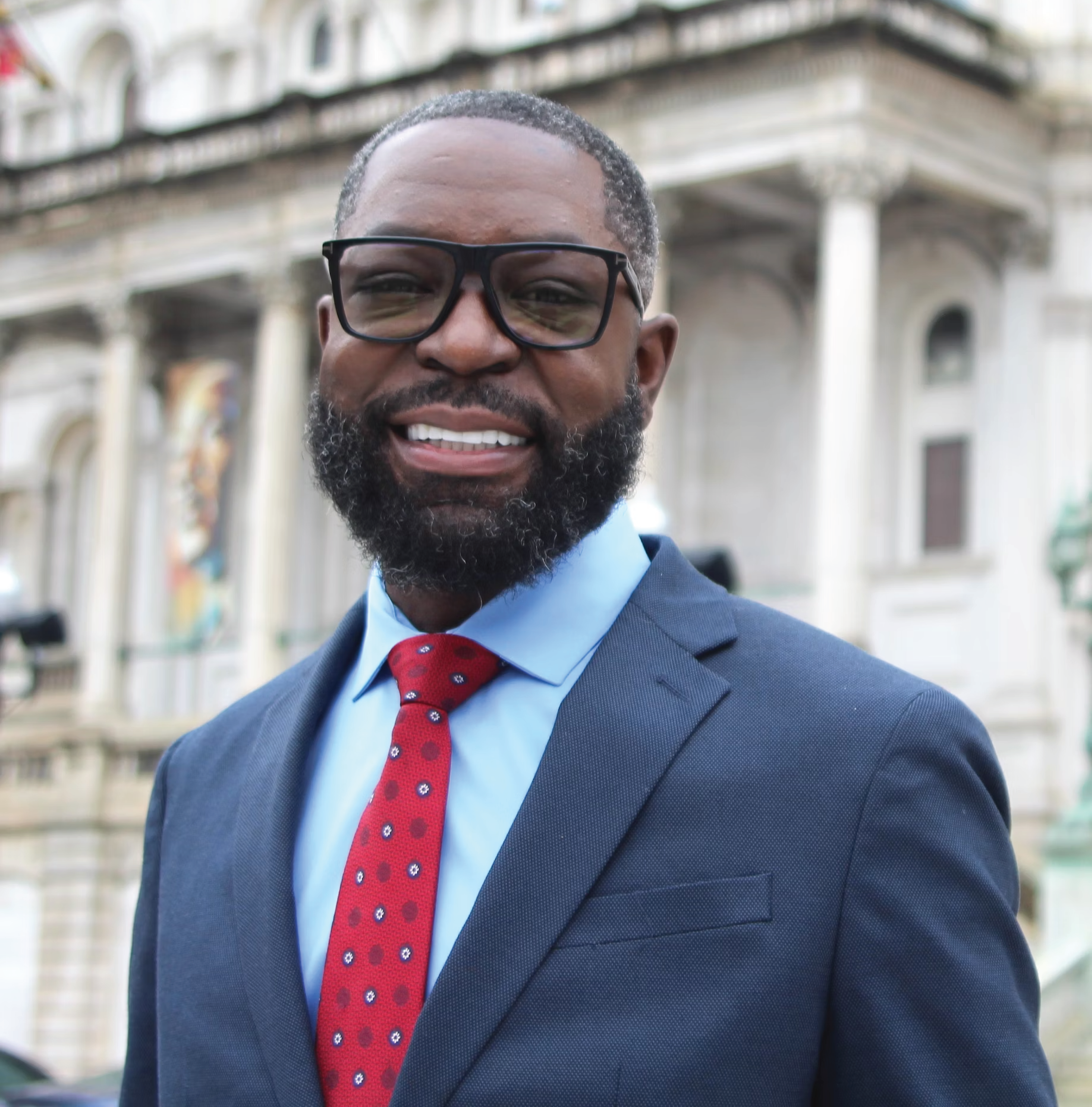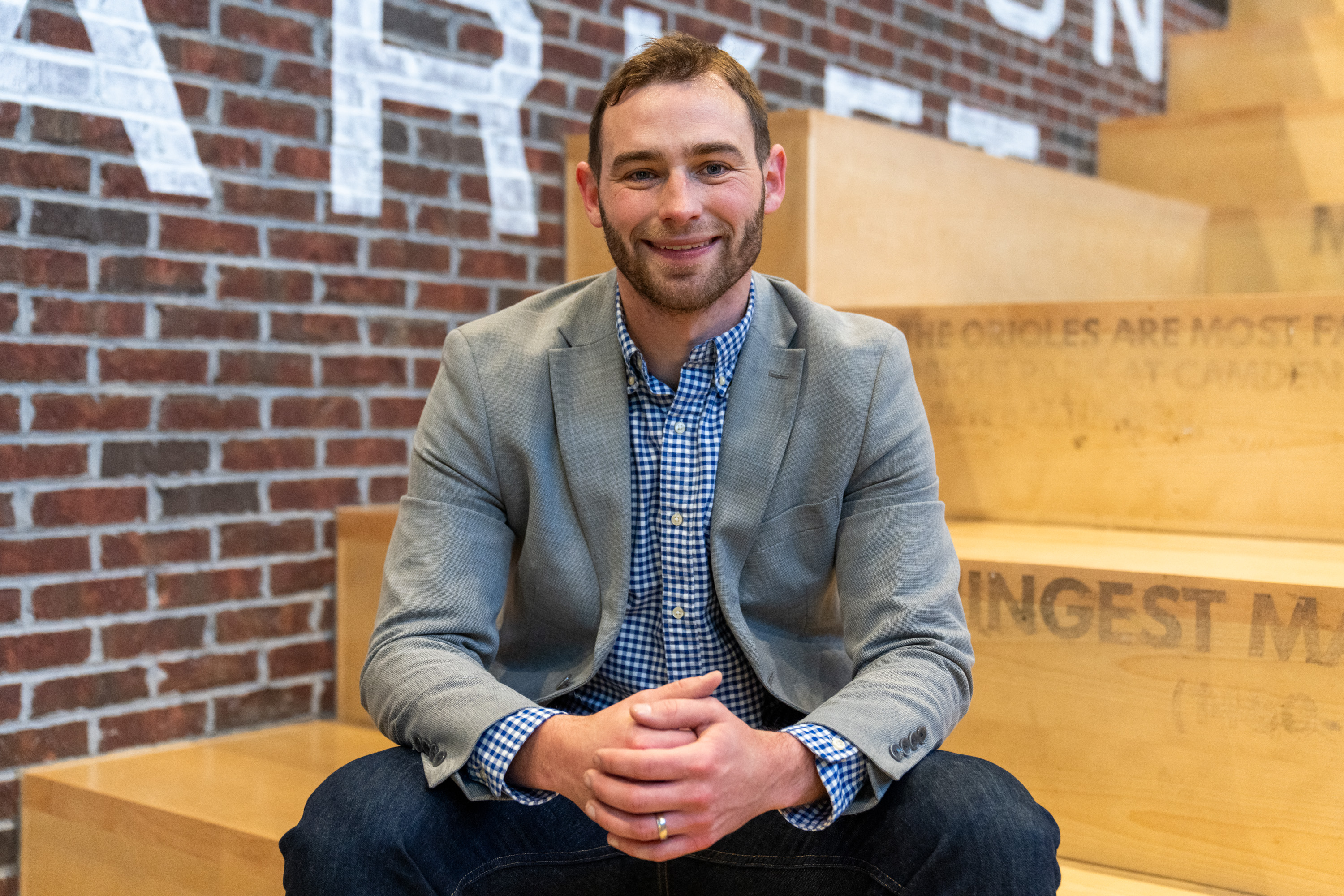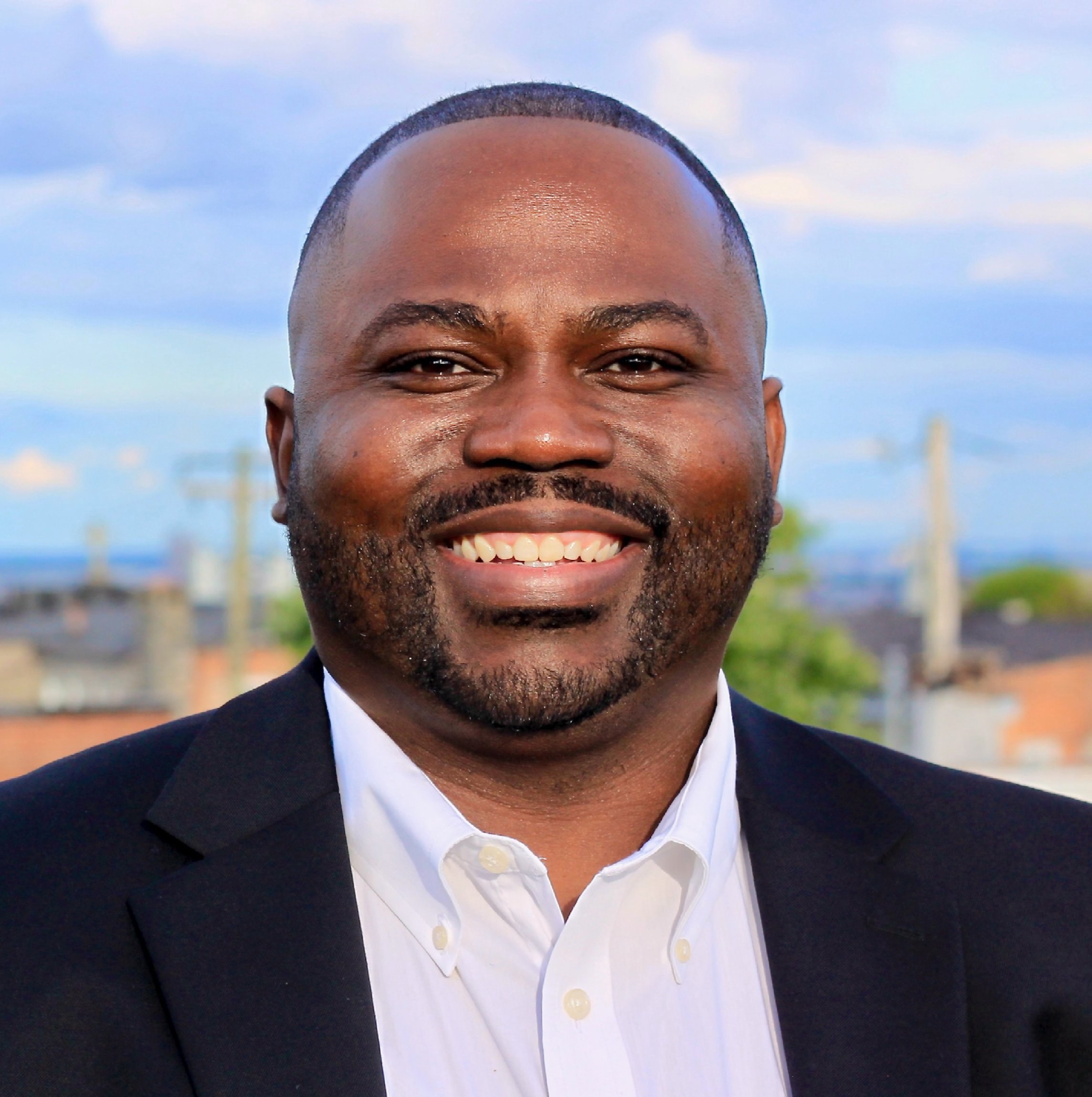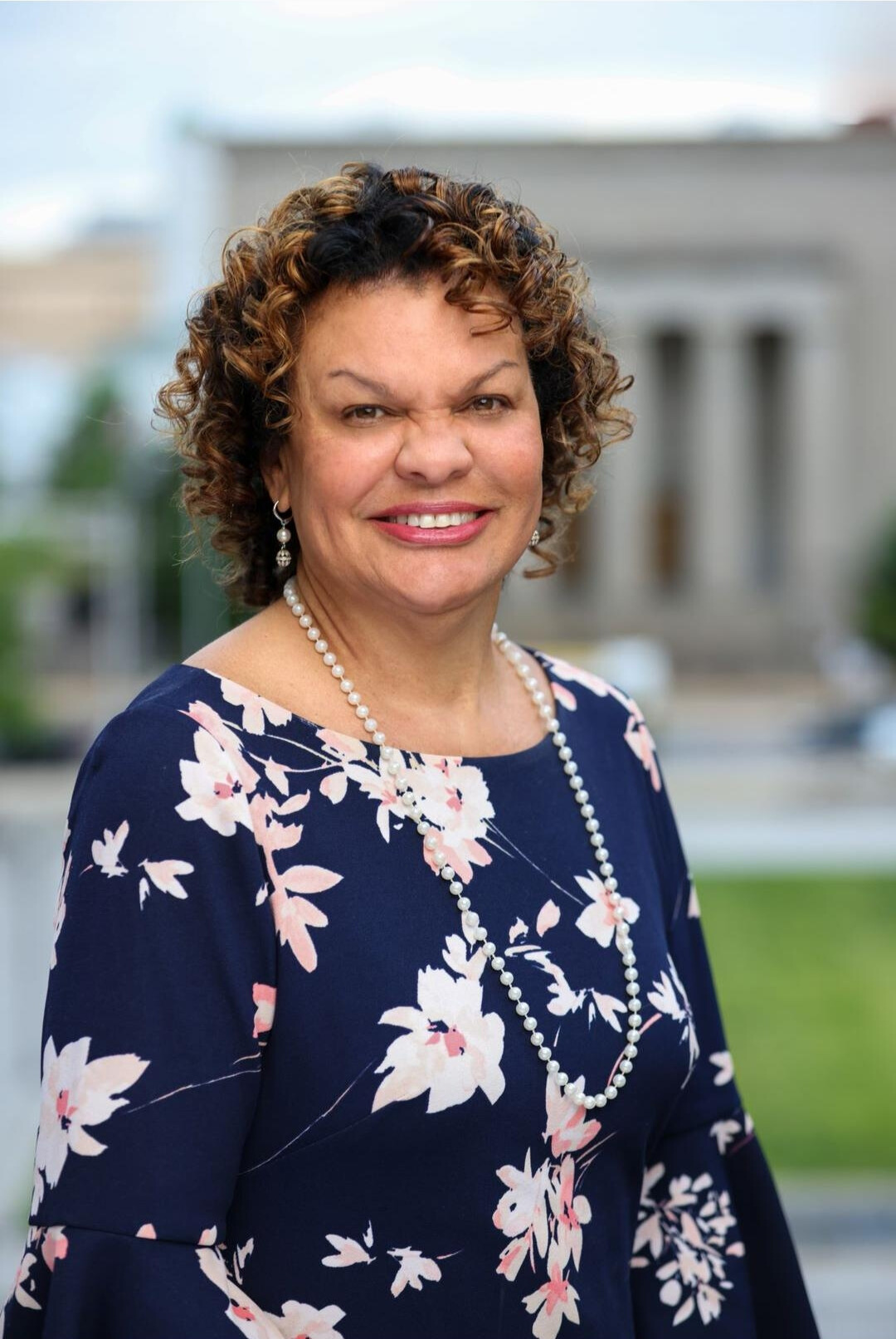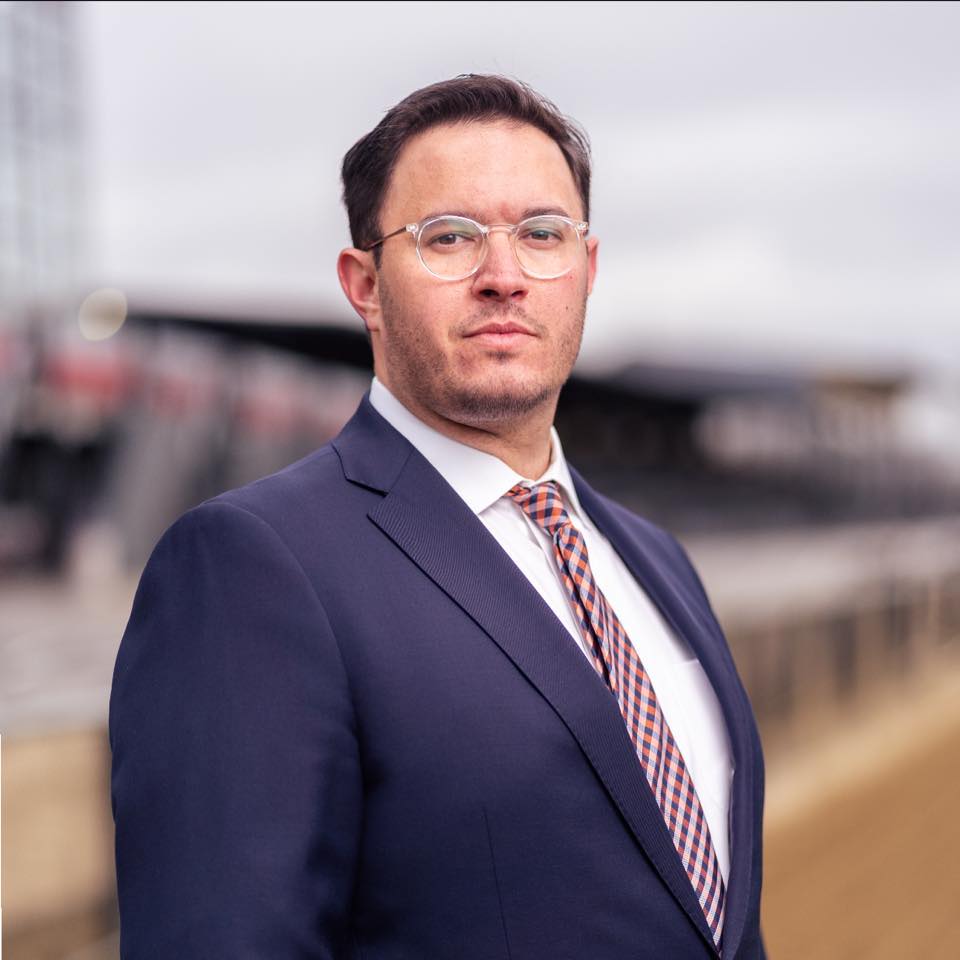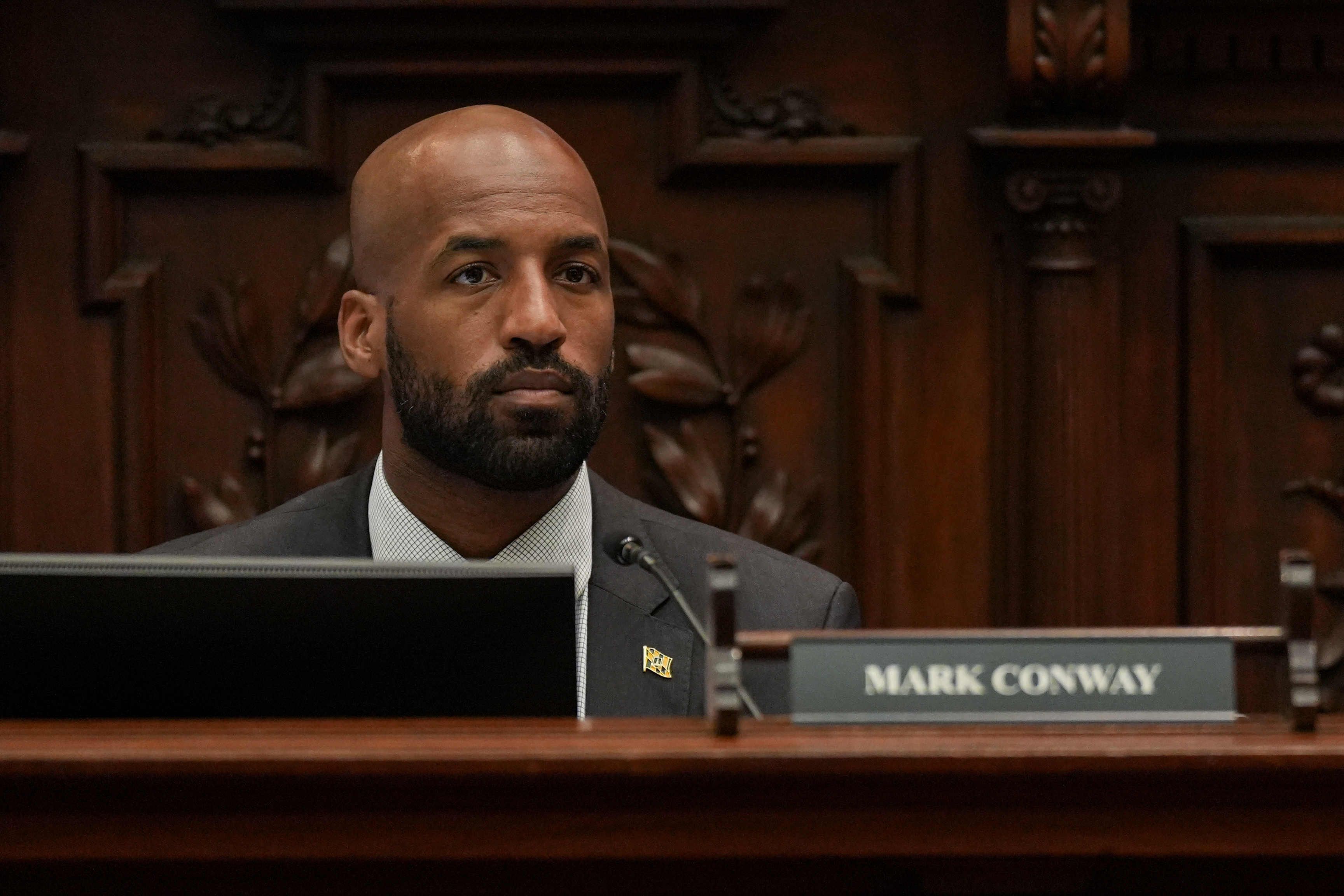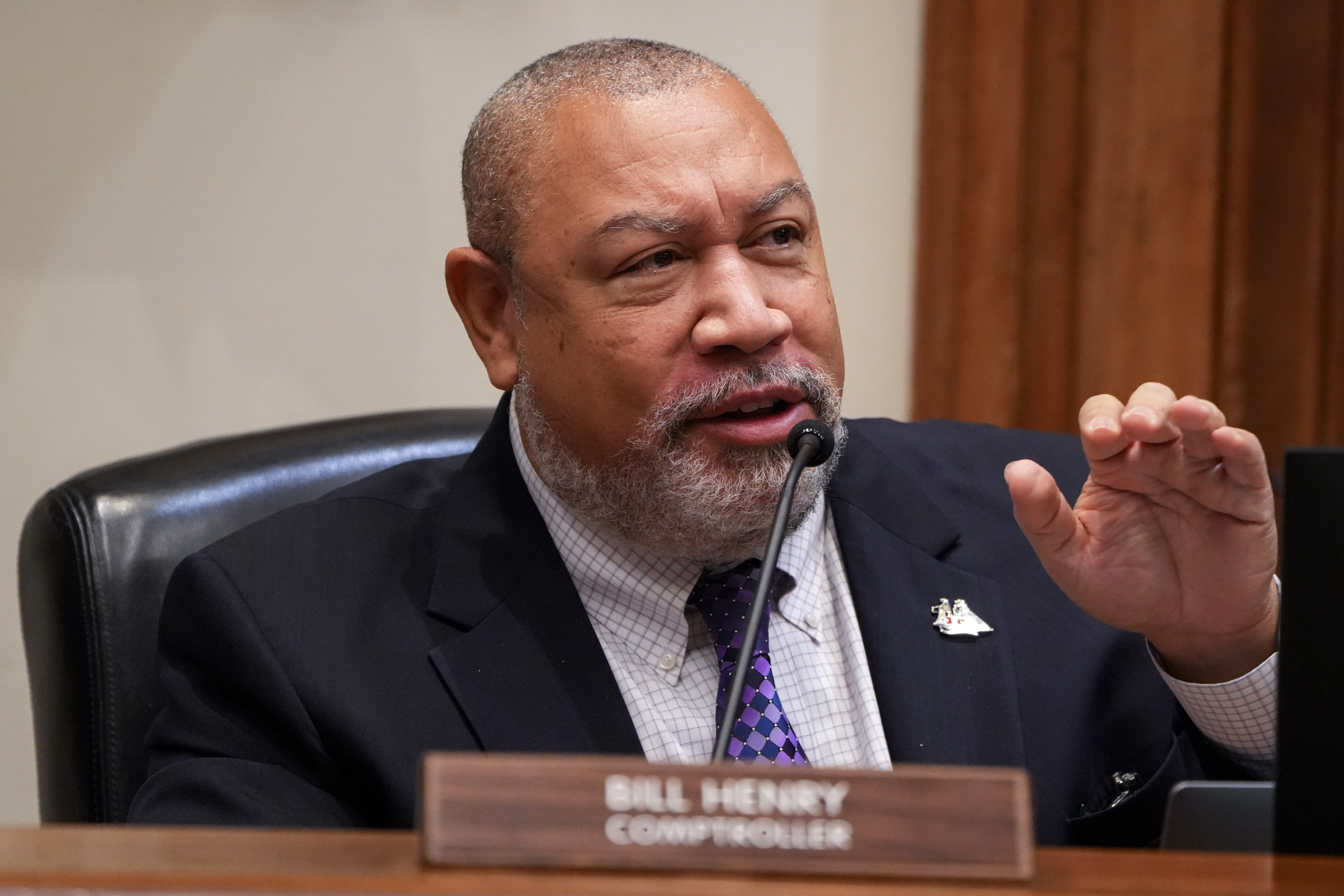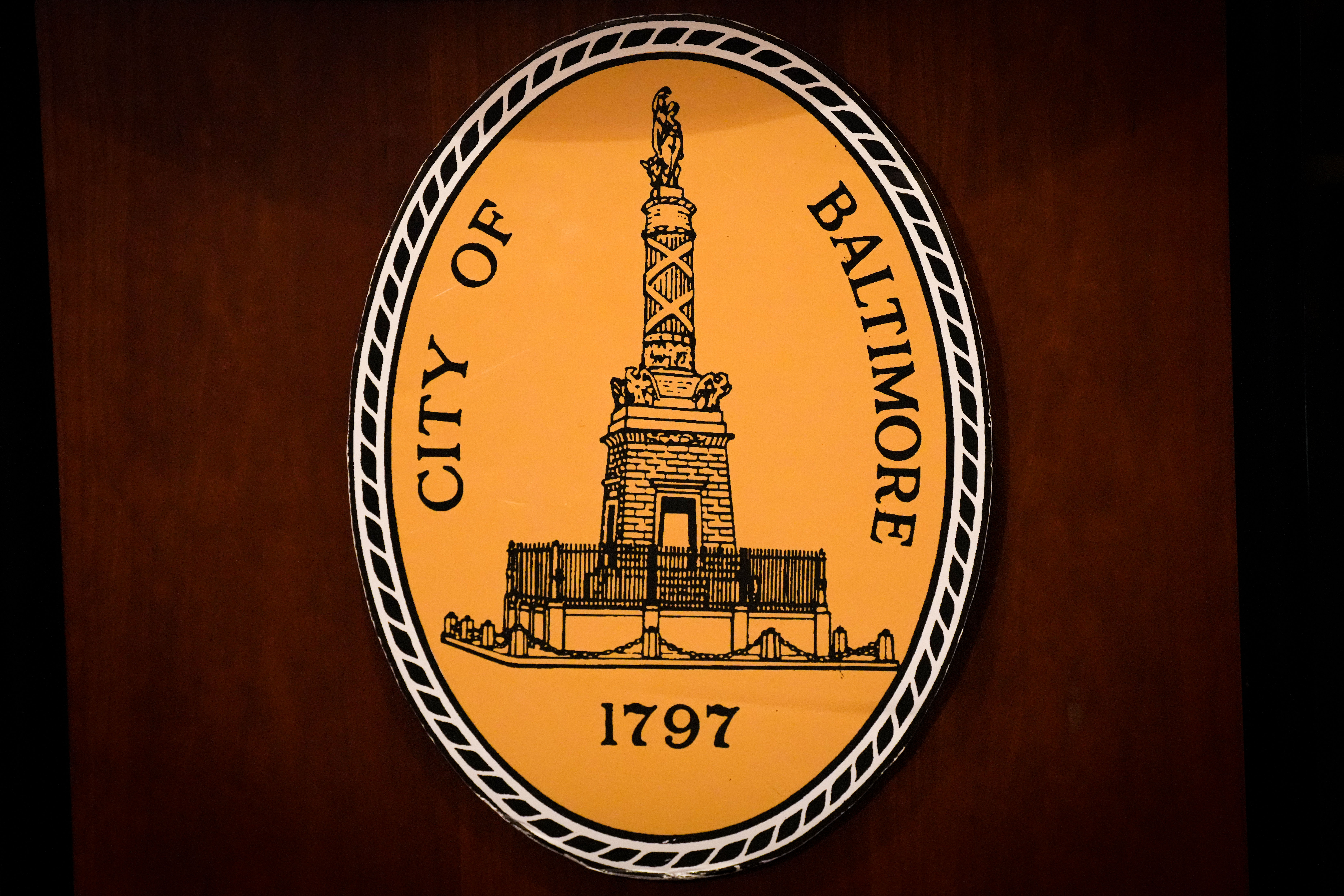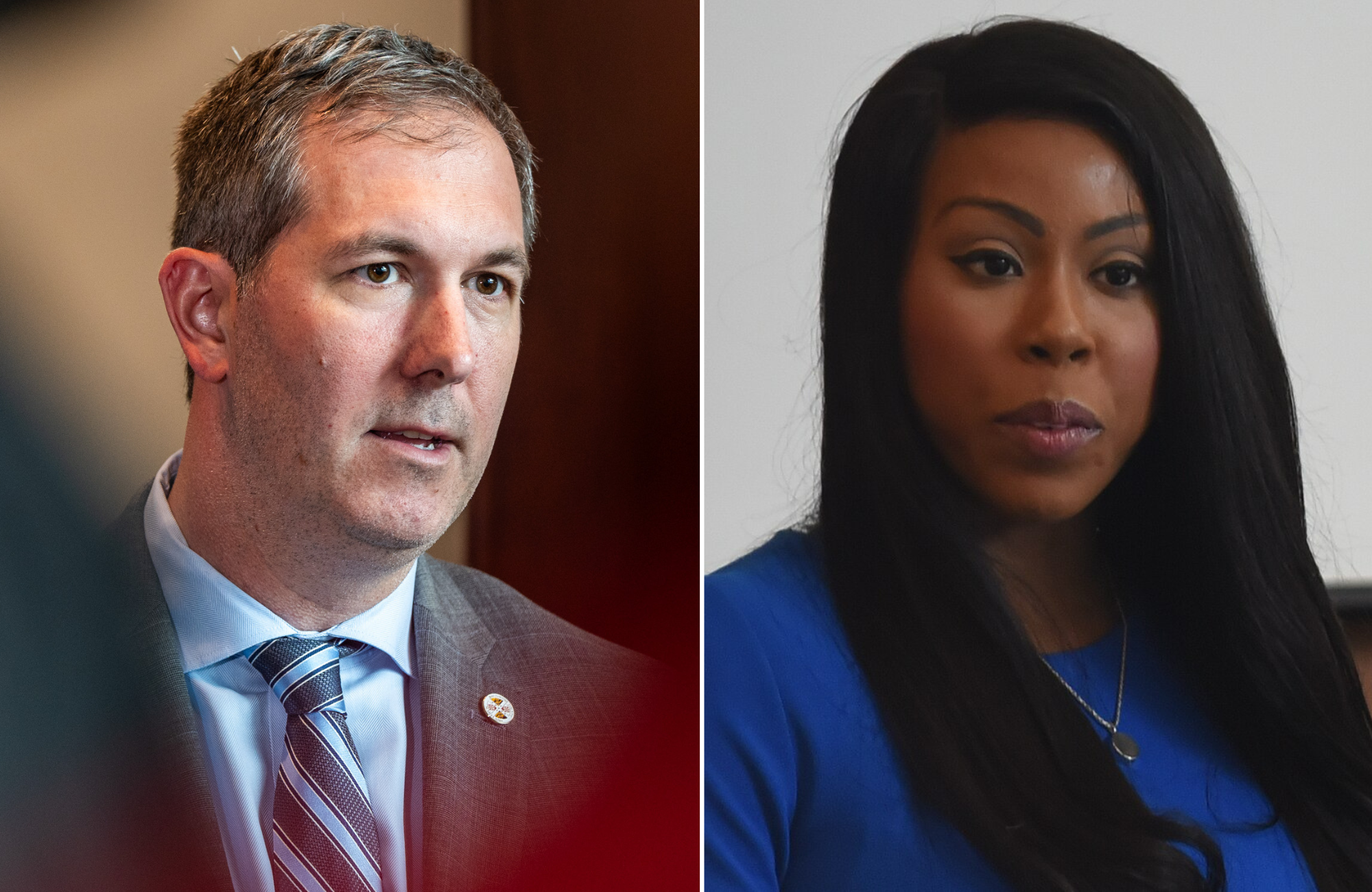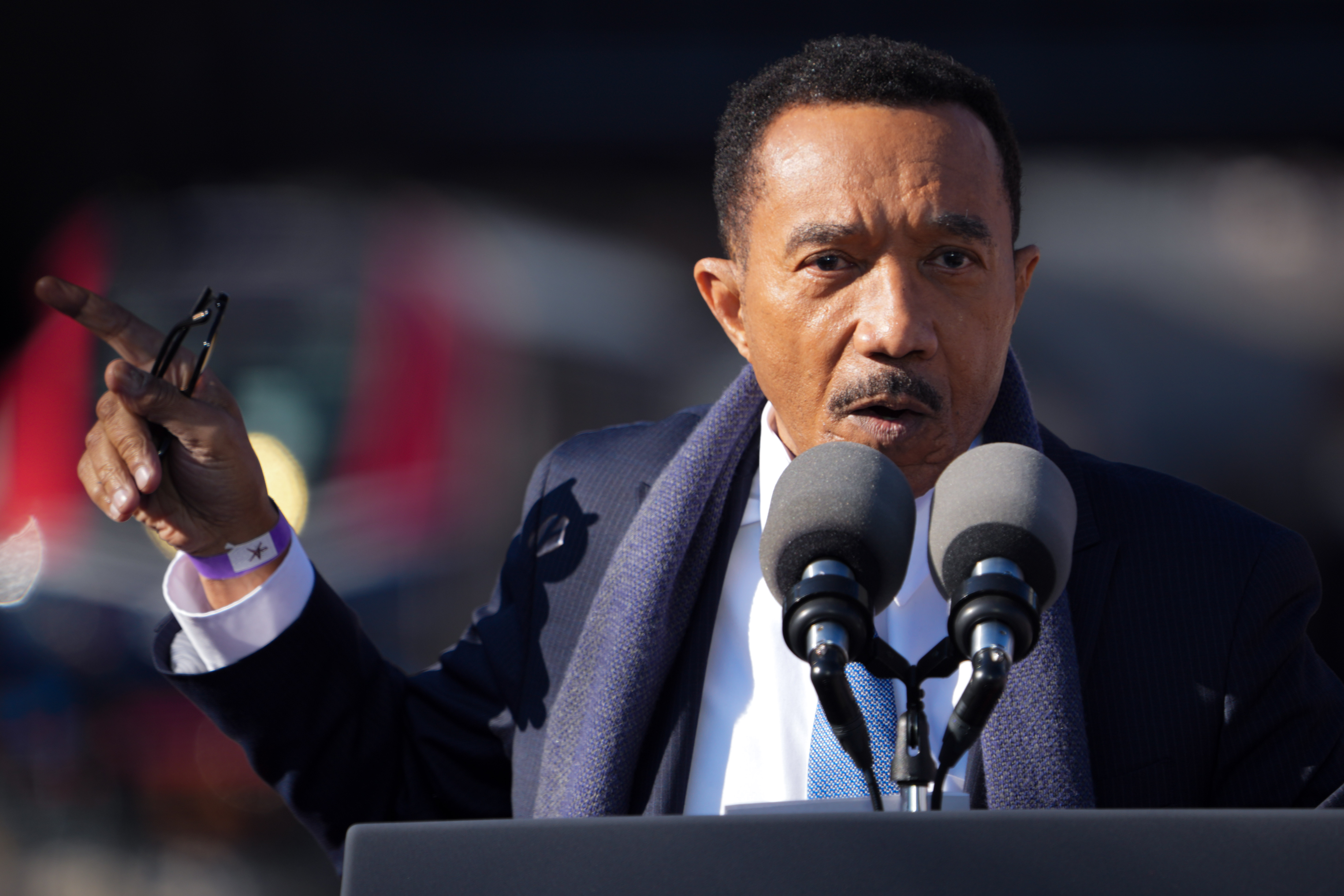What’s the job: Would serve as one of Maryland’s eight members of the 435-member U.S. House of Representatives. Responsible for introducing and voting on legislation, approving federal spending and providing oversight of federal government operations. The 3rd Congressional District includes all of Howard County, the northern portion of Anne Arundel County and a small piece of Carroll County.
Find your congressional district here.
Democrat
Name: Sarah Elfreth
Age: 35
Personal: Her partner, Eric Costello, represents the 11th District on Baltimore City Council.
Education: Bachelor’s degree, Towson University; master’s degree, public policy, the Johns Hopkins University
Experience: Maryland Senate, District 30, 2019-present; Maryland’s representative on the Chesapeake Bay Commission since 2019; former member of the University System Board of Regents; adjunct professor at Towson University.
Endorsements: National Education Association, League of Conservation Voters, Sierra Club, International Association of Fire Fighters, Baltimore District Council of the International Longshoremen’s Association, International Brotherhood of Teamsters, former U.S. Rep. Tom McMillan, state Sen. Pam Beidle, state Sen. Dawn Gile, Del. Dana Jones, Del. Andrew Pruski, Del. Heather Bagnall, Anne Arundel County Executive Steuart Pittman, former Anne Arundel County Executive Janet Owens, Anne Arundel County Councilwoman Allison Pickard, Anne Arundel County Councilwoman Lisa Rodvien.
Notable donors: U.S. Rep. David Trone; Alex Smith of Atlas Restaurant Group; developer Mark Sapperstein; investor and philanthropist John Hussman and his wife, Theresa; developer David Cordish; former state budget secretary Chip DiPaula.
Questionnaire
A: If elected to Congress I will immediately cosponsor vital legislation to codify Roe v Wade into law and guarantee abortion access for a new generation of Americans, protect and expand our democracy and voting rights, and pass meaningful, common-sense gun legislation that will save lives. I will also continue to build on my record as a champion on watershed issues to support the Chesapeake Bay’s health and to ensure estuaries across the country have the resources they need to thrive for generations to come. The Chesapeake Bay isn’t just our most precious natural resource, it’s a powerful economic engine that drives our state and region.
A: I would oppose any effort to renew the Trump tax cuts, which were a massive giveaway to the wealthiest Americans and our large corporations. Middle and working-class Americans need tax relief more than ever, they should be the focus of future tax cuts.
A: The Affordable Care Act was a powerful step toward guaranteeing truly affordable healthcare access to millions of Americans. Still, there is more work that we can do to reduce costs, especially for the most vulnerable communities. I believe the Biden Administration has made great progress on allowing Medicare to negotiate the cost of life-saving prescriptions and capping the cost of insulin at $35. In Congress, I’ll work to expand the number of prescription drugs that Medicare can negotiate pricing for, and continue to reduce costs on dozens of other life-saving drugs.
A: No.
A: No.
A: Yes.
A: Yes.
A: Immigrants make meaningful contributions to our communities and our economy. In the Maryland Senate, I have proudly voted for laws to help immigrants come out of the shadows and thrive in our society. The crisis at the southern border is real, and congressional Republicans exacerbated the problem when they walked away from bipartisan immigration reform earlier this year. The federal government should prioritize immigration enforcement against those who pose a security threat, and it should never intentionally separate children from their parents. In Congress, I will support creating a pathway to citizenship, increasing funding for border security, and streamlining the asylum process.
A: I believe in bringing people from across the ideological spectrum together to discuss problems and develop solutions. In the Maryland Senate, I passed 91 laws in five years — all with bipartisan support. Like many Americans, I was encouraged to see Democrats and Republicans come together to address immigration, and I was disappointed when Donald Trump and congressional Republicans tanked the deal for their own partisan gain. I do not agree with every aspect of the bipartisan compromise put forward in February, but I would have voted for it because the status quo is unacceptable. In Congress, I will treat that compromise as a floor for future negotiations — it is something we can build on to develop a more comprehensive and humane immigration policy.
A: Budget brinksmanship undermines the public’s trust in the federal government and disproportionately hurts our state’s economy. In the Maryland Senate, I co-sponsored the Federal Shutdown Paycheck Protection Act in 2019, which was designed to help civilian employees weather a federal government shutdown. In Congress, I will be a tireless advocate for federal employees and contractors who are directly affected by a shutdown. I will also be relentless on behalf of Marylanders who are dependent on services the federal government provides. I will do my best to help my colleagues understand that their partisan games affect real people. I will build relationships across the political aisle and work with reasonable Republicans to prevent Congress from going to the brink of a shutdown.
A: Long-term peace in the region is essential to the stability of the entire world. I traveled to Israel for the first time last summer and witnessed a vibrant democracy facing existential threats. I met with civic, government, nonprofit, and business leaders, including leaders in the Palestinian Authority, who are committed to peace and stability. I was horrified by the events of October 7, 2023, when more than 1,200 Jews were murdered by the terrorist group Hamas, and 240 people were taken hostage. I condemn the attacks in the strongest terms possible, and I support Israel’s right to exist and defend itself. I strongly support a two state solution to bring lasting peace, which will require Hamas to release all of the hostages, and will require the United States and other nations to support the rebuilding of communities in Gaza. I mourn the loss of civilian life and believe we must provide humanitarian relief to Palestinian civilians.
A: Congress has failed repeatedly to take action to protect our communities from gun violence. In the Maryland Senate, I voted for some of the nation’s toughest gun control laws, and I sponsored legislation to tax guns and ammunition to fund our state’s world class trauma system. In Congress, I will fight to ban military-style assault weapons, require background checks, and crack down on illegal weapons.
A: The morning after the 2016 election, I realized I would be represented exclusively by men at the local, county, state, and federal levels. I believe laws that affect women should be written by women, which is why I decided to run for the Maryland Senate in 2018. I defeated a pro-life, NRA-backed candidate to become the youngest woman ever elected to the Maryland Senate. I also became one of the most effective Senators, passing 91 bills in my first five years in office - all with bipartisan support. In Congress, too many people live in their partisan corners and care more about their cable news appearances and social media accounts. I am running for Congress to change that. If elected, I will focus on the hard work of governing well and prioritize working across party lines to get results for the people I represent.
Primary Questionnaire
Read the candidate’s answers to our previous questionnaire.
A: No.
A: No.
A: Yes.
A: Yes.
A: Immigrants make meaningful contributions to our communities and our economy. In the Maryland Senate, I have proudly voted for laws to help immigrants come out of the shadows and thrive in our society. The crisis at the southern border is real, and congressional Republicans exacerbated the problem when they walked away from bipartisan immigration reform earlier this year. The federal government should prioritize immigration enforcement against those who pose a security threat, and it should never intentionally separate children from their parents. In Congress, I will support creating a pathway to citizenship, increasing funding for border security, and streamlining the asylum process.
A: I believe in bringing people from across the ideological spectrum together to discuss problems and develop solutions. In the Maryland Senate, I passed 84 laws in five years — all with bipartisan support. Like many Americans, I was encouraged to see Democrats and Republicans come together to address immigration, and I was disappointed when Donald Trump and congressional Republicans tanked the deal for their own partisan gain. I do not agree with every aspect of the bipartisan compromise put forward in February, but I would have voted for it because the status quo is unacceptable. In Congress, I will treat that compromise as a floor for future negotiations — it is something we can build on to develop a more comprehensive and humane immigration policy.
A: Budget brinksmanship undermines the public’s trust in the federal government and disproportionately hurts our state’s economy. In the Maryland Senate, I co-sponsored the Federal Shutdown Paycheck Protection Act in 2019, which was designed to help civilian employees weather a federal government shutdown. In Congress, I will be a tireless advocate for federal employees and contractors who are directly affected by a shutdown. I will also be relentless on behalf of Marylanders who are dependent on services the federal government provides. I will do my best to help my colleagues understand that their partisan games affect real people. I will build relationships across the political aisle and work with reasonable Republicans to prevent Congress from going to the brink of a shutdown.
A: Long-term peace in the region is essential to the stability of the entire world. I traveled to Israel for the first time last summer and witnessed a vibrant democracy facing existential threats. I met with civic, government, nonprofit, and business leaders, including leaders in the Palestinian Authority, who are committed to peace and stability. I was horrified by the events of October 7, 2023, when more than 1,200 Jews were murdered by the terrorist group Hamas, and 240 people were taken hostage. I condemn the attacks in the strongest terms possible, and I support Israel’s right to exist and defend itself. I strongly support a two-state solution to bring lasting peace, which will require Hamas to release all of the hostages, and will require the United States and other nations to support the rebuilding of communities in Gaza. I mourn the loss of civilian life and believe we must provide humanitarian relief to Palestinian civilians.
A: Ukraine, the Israeli military, civilians in Gaza.
A: Congress has failed repeatedly to take action to protect our communities from gun violence. In the Maryland Senate, I voted for some of the nation’s toughest gun control laws, and I sponsored legislation to tax guns and ammunition to fund our state’s world class trauma system. In Congress, I will fight to ban military-style assault weapons, require background checks, and crack down on illegal weapons.
A: The morning after the 2016 election, I realized I would be represented exclusively by men at the local, county, state, and federal levels. I believe laws that affect women should be written by women, which is why I decided to run for the Maryland Senate in 2018. I defeated a pro-life, NRA-backed candidate to become the youngest woman ever elected to the Maryland Senate. I also became one of the most effective Senators, passing 84 bills in my first five years in office — all with bipartisan support. In Congress, too many people live in their partisan corners and care more about their cable news appearances and social media accounts. I am running for Congress to change that. If elected, I will focus on the hard work of governing well and prioritize working across party lines to get results for the people I represent.
Republican
Name: Robert J. Steinberger
Age: 52
Personal: Married, three children.
Education: Bachelor’s degree, economics, Japanese, computer applications, University of Notre Dame; master’s degree, business administration, Darden Graduate School of Business, University of Virginia; master’s degree, education technology leadership, George Washington University; graduate of Pace University School of Law.
Experience: Executive management and corporate law.
Endorsements: None.
Notable donors: None.
Questionnaire
What would be the first piece of legislation you would introduce?
Would you vote to renew the Tax Cuts and Jobs Act, also known as the Trump tax cuts? Please explain.
Do you think any changes to the Affordable Care Act national health care law are needed?
A: No.
A: Yes.
A: Yes.
A: Yes.
A: There is a border crisis presently. It is possible to control the border, but we must ensure the investment in infrastructure, personnel, and processes are sufficient to meet the demands we face. Today, US border personnel cannot keep up with the influx into our country. And we must fix that. It goes without saying that entrants to the US must abide by and follow our immigration laws. I believe lawful immigration must be encouraged and supported, as it has always been a path to growth for our country.
A: I have not read the bill personally, so I cannot say with 100% certainty how I would vote. However, my understanding is that a great deal of work went into finding a compromise that was supported on both sides of the aisle and could have worked. The bipartisanship that went into the drafting of the bill seems to have been undermined by extremism. As a Representative from Maryland, I will work to find solutions to ensure important measures like this one move forward.
A: First of all, it is paramount that Congress and the President pass the US Budget on time. In the event this cannot happen, I would keep the government running by introducing automatic continuing resolutions (CRs) of the previous year’s budget/appropriation terms minus a penalty. This would eliminate the risk of a shutdown, while providing a path forward for the current year. However, let me be clear, CRs should be a stopgap, not the default go to. Dependence on CRs and related spending may cause inefficiencies or be misaligned to current year needs. These issues can be prevented by Congress and the President passing an appropriate and timely budget. And in the event CRs are necessary, CR misalignment can be remedied through swift action to pass a (late) budget.
A: The conflict in Gaza has a huge humanitarian cost on both sides. Therefore, the U.S. must strongly encourage Israel to find alternative means and initiate a ceasefire. Israel does not need additional aid from the U.S., but advice and counsel on ending the conflict should be offered. Civilian aid to the people of Gaza must be shared.
A: Ukraine, civilians in Gaza.
A: Yes. Several states including CA, CT, DE, HI, IL, MA, MD, NJ, NY, and WA as well as DC already have such bans in place. I also support mandatory training, purchase waiting periods, licensure and storage requirements for gun owners, generally. We know there is a link between mental health and gun violence, and solutions to this aspect of the problem in terms or easier access to proper care and support must also be addressed.
A: I am a problem solver who believes in the power of collaboration and compromise. I know that our communities are strongest when we work together, and I am committed to bringing people of all backgrounds and political beliefs to the table to find solutions to the challenges we face. We are in this together. Divisive rhetoric has never led to solutions. I will be a voice for all Maryland residents. I believe in efficient and effective government spending, using taxpayer dollars on programs that have real positive impact on families in Maryland.
Libertarian
Name: Miguel Barajas
Did not respond to biographical questions.
Questionnaire
I would introduce an income tax reduction bill. This would include across-the-board cuts in individual and business tax rates, simplification of the tax code, and potential elimination of certain tax brackets for a flatter structure. The bill would aim to increase standard deductions, benefiting low-income earners, and possibly reduce payroll taxes. To maintain fiscal responsibility, it would include measures for budget neutrality, likely through spending cuts. The legislation would be implemented gradually to minimize economic disruption, with a sunset clause for future reassessment. This approach aims to boost disposable income, stimulate economic growth, and enhance personal financial freedom.
I would vote to renew the Tax Cuts and Jobs Act. This legislation aligns with the goal of reducing tax burdens on individuals and businesses. Key benefits include lower individual tax rates, an increased standard deduction, and reduced corporate tax rates. These changes allow people to keep more of their earned income and can stimulate economic growth by encouraging consumer spending and business investment.
Changes to the Affordable Care Act (ACA) are needed to address its shortcomings while preserving beneficial aspects. Key modifications could include: Increasing market competition to lower costs Reducing regulations to allow more flexible insurance options Expanding Health Savings Accounts for greater individual control Improving price transparency in healthcare services Reforming medical malpractice laws to reduce defensive medicine costs Allowing interstate insurance sales to increase competition Revising the employer mandate to reduce burden on businesses Adjusting subsidies to better target those most in need Streamlining administrative processes to reduce overhead costs. These changes aim to maintain coverage for pre-existing conditions and young adults on parent plans while addressing cost issues and expanding consumer choice. The focus should be on market-driven solutions and individual empowerment in healthcare decisions, balancing accessibility with economic sustainability.
No.
No.
No
Yes, there is a crisis at the U.S. southern border. To address it, I recommend: Removing access to taxpayer-funded benefits for individuals who enter the country illegally. This would reduce incentives for unauthorized immigration. Implementing immediate removal orders for non-legal residents upon encounter. This swift action would deter illegal entry and reduce the strain on immigration systems. Enhancing border security measures to prevent illegal crossings. Streamlining the legal immigration process to encourage lawful entry. Increasing cooperation with source countries to address root causes of migration. Improving technology for faster processing and identification of individuals at the border. Enforcing existing immigration laws more consistently. These solutions aim to discourage illegal immigration, reduce the financial burden on taxpayers, and maintain the integrity of the immigration system while still allowing for legal, controlled immigration.
I would not have voted for the bipartisan immigration bill proposed in February. While it aimed to address border security and immigration issues, it fell short in several key areas: It did not fully remove access to taxpayer benefits for those entering illegally, which could continue to incentivize unauthorized immigration. The bill’s provisions for expedited removal were not comprehensive enough, potentially allowing many illegal entrants to remain in the country for extended periods. It included funding that could be seen as rewarding or enabling illegal immigration rather than deterring it. The proposed changes to the asylum system did not go far enough in preventing abuse of the system. The bill did not sufficiently address the need for stricter enforcement of existing immigration laws. Instead, I would advocate for legislation that more strongly emphasizes individual responsibility, reduces reliance on government resources, and prioritizes the interests of legal residents and citizens. The focus should be on creating a system that encourages legal immigration while firmly discouraging illegal entry.
To break the cycle of last-minute federal budget deals and prevent government shutdown threats, I would: Implement a rule that Congress and their staff do not get paid if they fail to pass a budget on time. This creates a personal incentive for timely action. Push for automatic continuing resolutions to maintain government funding at current levels if a new budget is not passed, preventing shutdowns. Require long-term budget planning, with multi-year projections and goals. Introduce stricter deadlines and consequences for missing budget milestones throughout the year. Promote transparency in the budget process, making negotiations and potential roadblocks public. Encourage bipartisan budget committees to work year-round on fiscal issues. Simplify the budget process to reduce opportunities for delays and political maneuvering. These measures aim to create accountability, reduce brinksmanship, and ensure more stable, predictable government operations.
Q: What would you do to promote peace in Gaza?
To promote peace in Gaza, I would recommend a multi-faceted approach: Encourage direct negotiations between Israeli and Palestinian leaders, with neutral third-party mediation. Support humanitarian aid efforts to address immediate civilian needs, but ensure aid does not benefit terrorist organizations. Promote economic development initiatives in Gaza to improve living conditions and reduce extremism. Advocate for a two-state solution that respects both Israeli security concerns and Palestinian aspirations for statehood. Push for demilitarization of Gaza in exchange for easing of blockades. Support education programs that promote tolerance and coexistence on both sides. Encourage regional Arab states to play a constructive role in the peace process. Address the root causes of conflict, including resource disputes and historical grievances. Emphasize individual responsibility and grassroots peace-building efforts rather than relying solely on top-down political solutions. This approach aims to balance security needs with humanitarian concerns, fostering long-term stability through mutual understanding and economic cooperation.
would not support a national ban on military-style semiautomatic rifles. The issue endangering others is social, not weapon-related. The style of the weapon is irrelevant. We need to focus on the real issues that lead people to violent behavior rather than on the tools they use. Cars cause more deaths than rifles, yet we do not ban them. This highlights the inconsistency in targeting specific weapons. Instead, we should address root causes of violence such as mental health issues, social alienation, and lack of conflict resolution skills. Banning weapons based on their appearance or design features does not address the underlying problems. We need to improve social support systems, enhance community connections, and provide better mental health resources. Education on responsible gun ownership and use is also crucial. Focusing on these real issues that guide others to kill would be more effective in reducing violence than banning specific types of firearms.
Voters should elect me because I offer a distinct alternative to the status quo in politics. I am willing to serve the public interest without seeking a long-term political career. My approach is rooted in breaking from traditional political patterns that have been ineffective for years. I stand for individual liberty coupled with personal responsibility. My focus is on reducing government intervention, lowering taxes, and addressing issues through individual action rather than top-down political solutions. I prioritize practical problem-solving over partisan loyalty. On issues like immigration, healthcare, and foreign policy, I advocate for solutions that empower individuals and local communities rather than expanding federal control. I encourage voters to make their choice based on their conscience and personal convictions, not party affiliation or tribal loyalties. My candidacy offers an opportunity for those dissatisfied with conventional political options. Ultimately, I present myself as a different option - one that respects the voters’ intelligence and right to choose freely. Whether you vote for me or not, I urge you to vote according to your principles and what you believe is best for the country.
